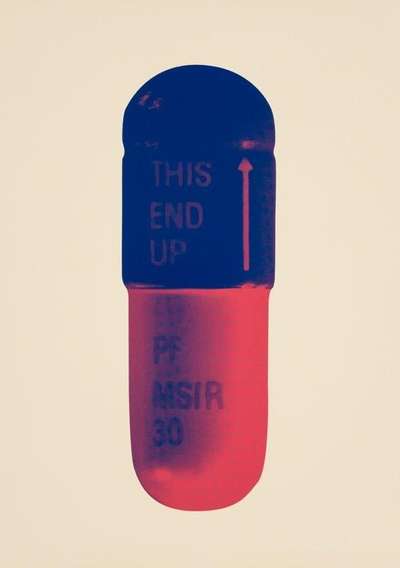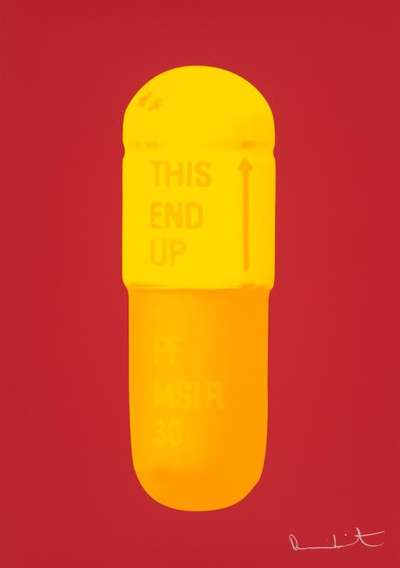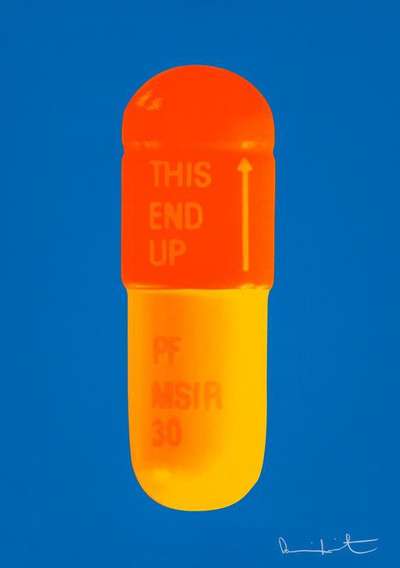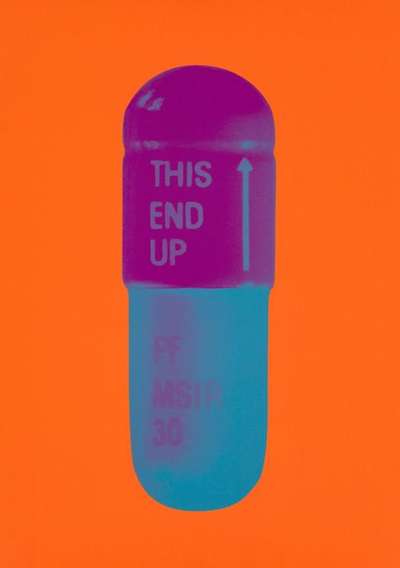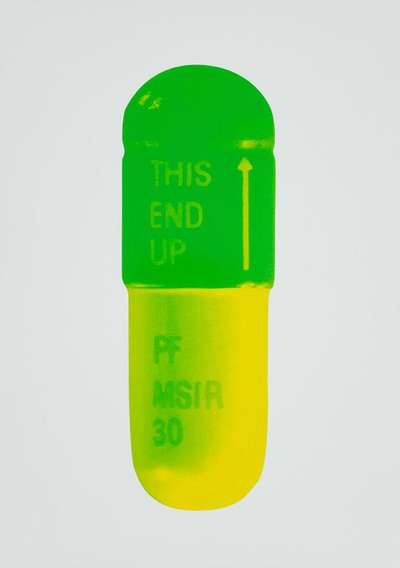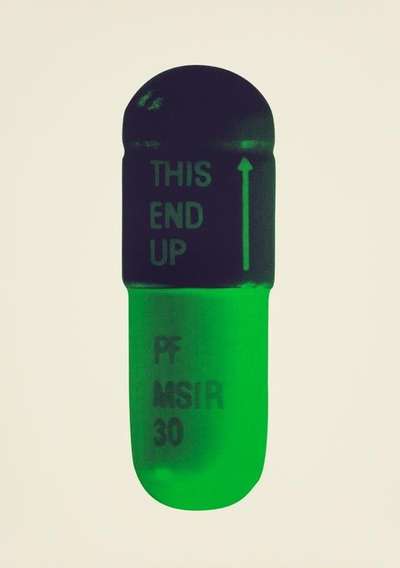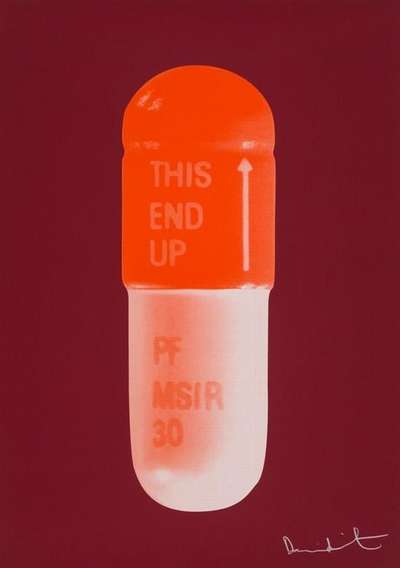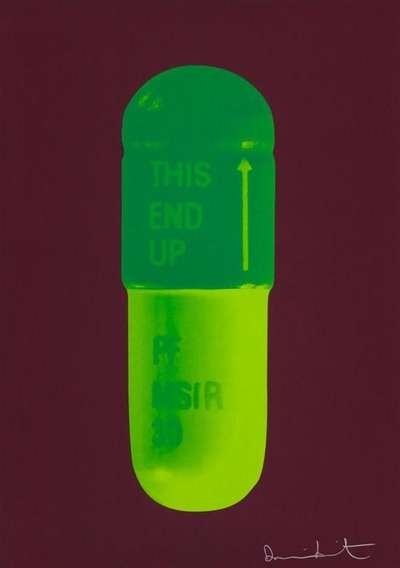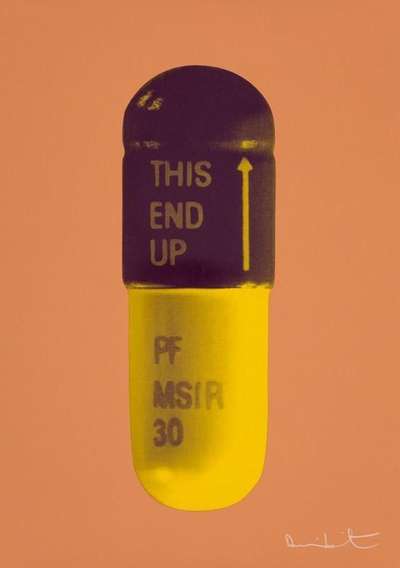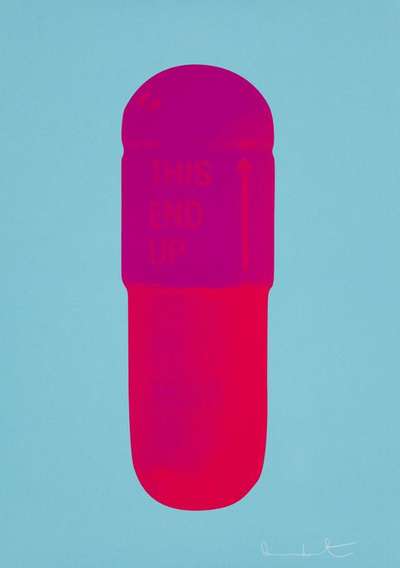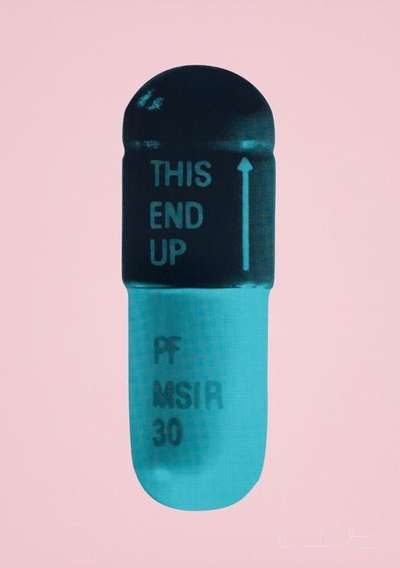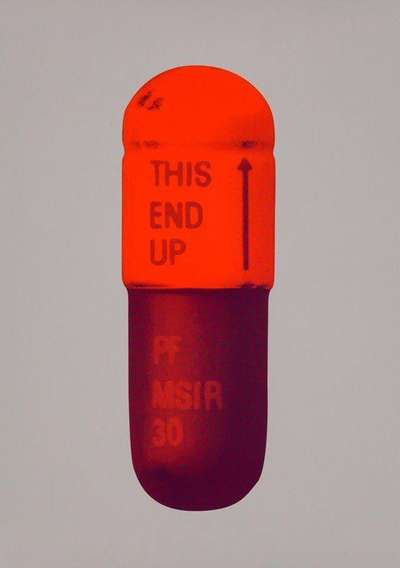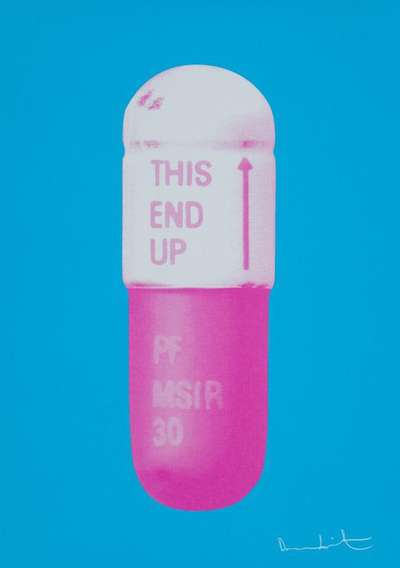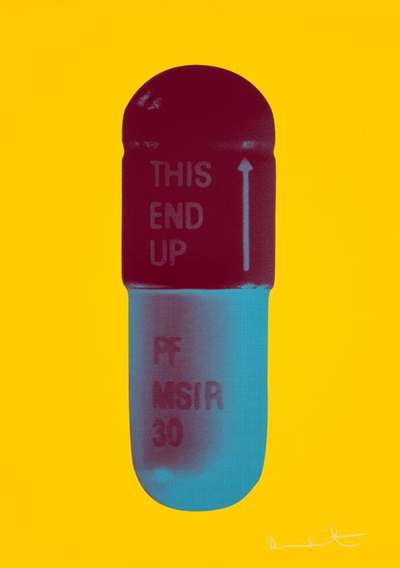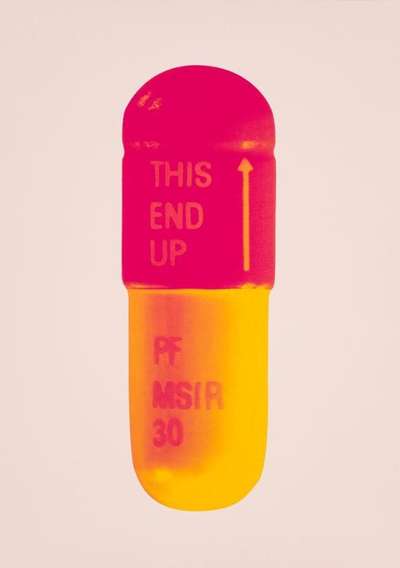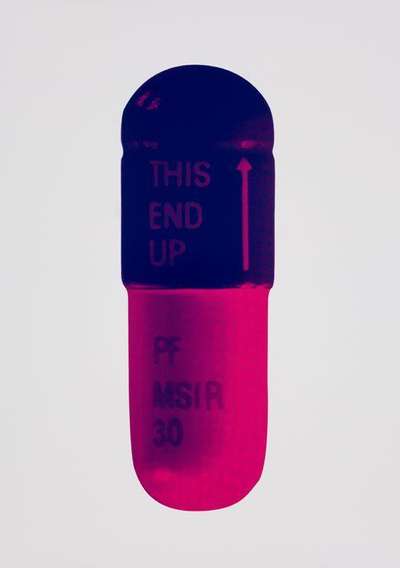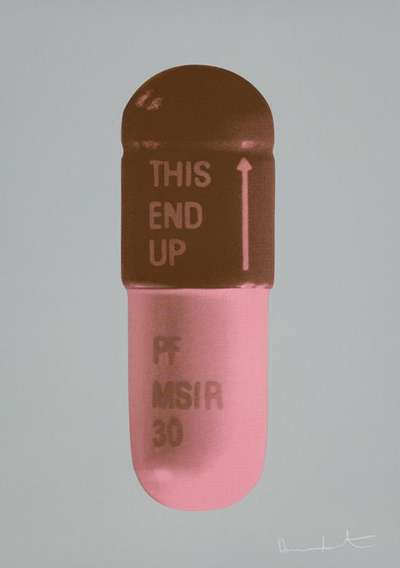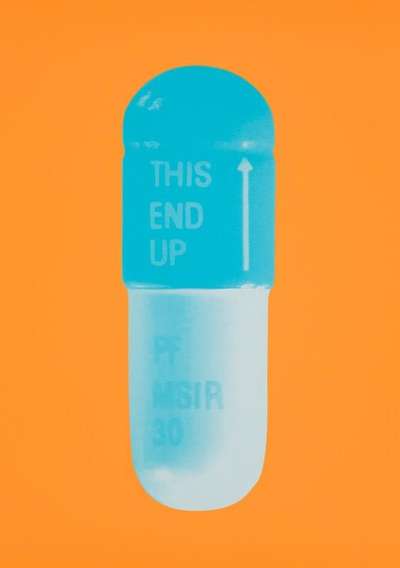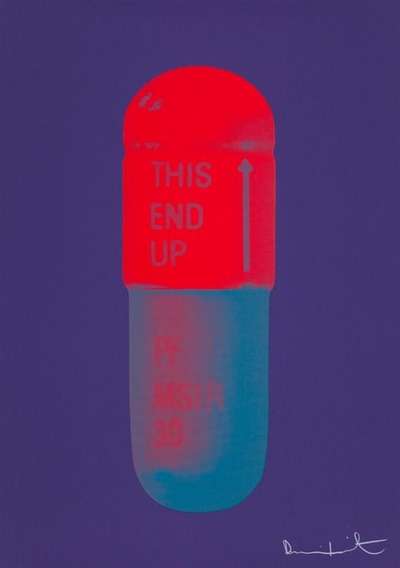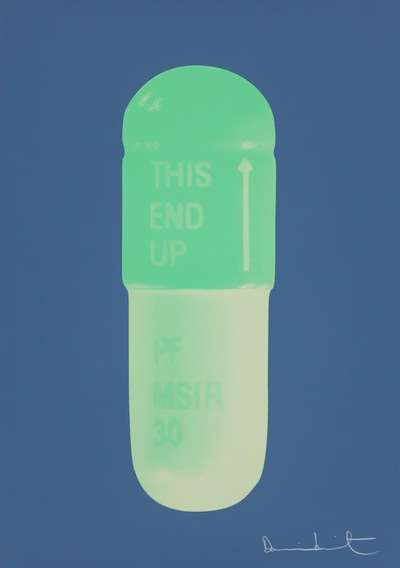
The Cure (sherbert green, royal blue, ocean blue)

The Cure (sherbert green, royal blue, ocean blue)
Signed Print
Damien Hirst
£6,000-£9,000Value Indicator
$12,500-$19,000 Value Indicator
$11,000-$17,000 Value Indicator
¥60,000-¥80,000 Value Indicator
€7,000-€11,000 Value Indicator
$60,000-$90,000 Value Indicator
¥1,170,000-¥1,750,000 Value Indicator
$8,000-$11,500 Value Indicator
AAGR (5 years) This estimate blends recent public auction records with our own private sale data and network demand.
There aren't enough data points on this work for a comprehensive result. Please speak to a specialist by making an enquiry.
Medium: Screenprint
Edition size: 15
Year: 2014
Size: H 72cm x W 51cm
Signed: Yes
Format: Signed Print
Track this artwork in realtime
Watch artwork, manage valuations, track your portfolio and return against your collection
Meaning & Analysis
The Cure (sherbert green, royal blue, ocean blue) is a silkscreen print by Damien Hirst on Somerset Tub. Produced in 2014, the print shows a two-colour pill, rendered by Hirst in two dark shades of blue, royal blue and ocean blue. Throughout the series, Hirst tends to favour bright and vibrant colours, however the blues in this print are darker and more sombre than other colour combinations. The pill is set against a pale, sherbert green backdrop. The light colour of the background contrasts with the dark blues of the pill, making it stand out in the centre of the composition.
The Cure (sherbert green, royal blue, ocean blue) is one of thirty silkscreen prints that compose Hirst’s The Cure series. In this series, Hirst renders a singular pill in a combination of two colour tones against a bold and vibrant coloured backdrop. No two prints in the series are identical as Hirst uses a unique combination of colours for each print. The bold and vibrant colours Hirst uses are clearly influenced by the work of Pop artist, Andy Warhol. Warhol was famous for his Pop Art prints in which he turned everyday objects into works of fine art, using bright colours to draw attention to the works and inject them with energy and dynamism.
The Cure (sherbert green, royal blue, ocean blue) reflects Hirst’s fascination with modern society’s obsession with science, modern medicine and the pharmaceutical industry. By making a pharmaceutical product into art, Hirst blurs the boundaries between art and science in this print, demanding that we appreciate the art behind science.
